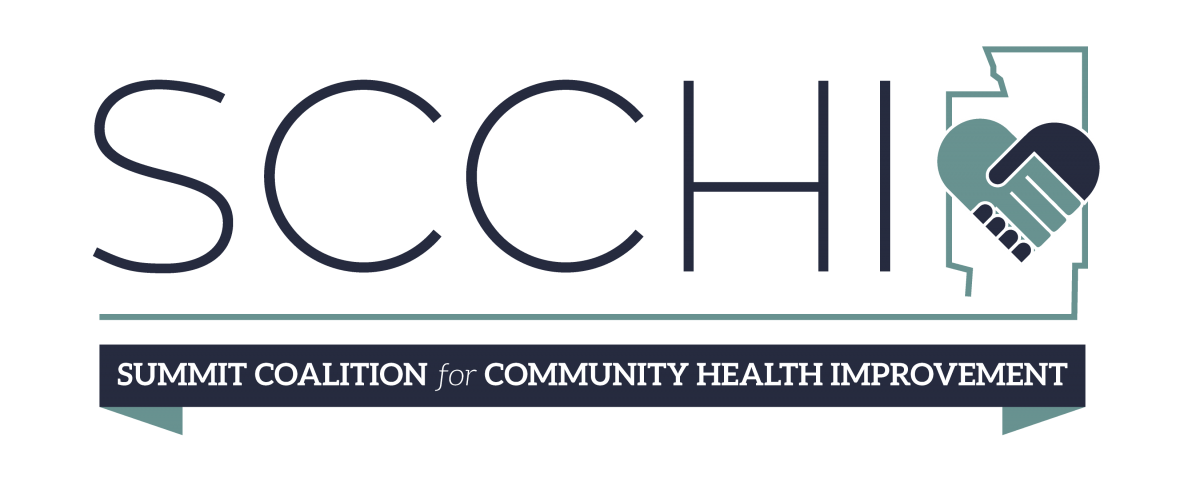
SCCHI Mission
SCCHI is an inter-agency collaborative committed to identifying key health priorities in Summit County and coordinating action to improve population health and promote health equity for all.
History
In response to chronic health conditions, the Austen BioInnovation Institute in Akron (ABIA), its founding members, and numerous community organizations have joined to launch a first-of-its-kind Accountable Care Community (ACC), which will use the full force of the Summit County, Ohio, community to combat the region’s health concerns.
The effort focuses on improving health status and health care delivery and lessening the burden of disease by building an initial framework of a comprehensive approach to health promotion and disease prevention, access to care and services, and health care delivery. The project, strives to focus Akron-area public, private, and philanthropic resources toward achieving improvements in population health and to closing gaps in health delivery, through aligned or coordinated efforts and pioneering approaches.
The ABIA, a unique biomedical innovation institute, was founded in 2008 by Akron Children’s Hospital, Akron General Health System, Northeast Ohio Medical University, Summa Health System, the University of Akron, and the John S. and James L. Knight Foundation, which committed an initial $20 million grant to launch the collaboration. Through this support and the backing of the institute by the City of Akron (Ohio) and County of Summit (Ohio), the ABIA provided the convergence force needed to align Akron’s diverse institutions that are involved in health.
The ACC in Summit county aims to share resources and build stronger community coalitions that will create not only a healthier Northeast Ohio, but also a replicable model for other communities.
In response to the health needs of the local community as well as the goals set by Healthy People 2020, the ACC initiative is focusing its efforts on chronic conditions, such as diabetes, obesity, asthma, and hypertension.
Buttressed by partnerships of diverse members working cooperatively for a common goal, the ACC initiative strives to leverage Akron resources from multiple sources to achieve a greater impact on the health of the community than any one organization could have alone. The initiative’s success will be tied closely to the trust and cooperation of the partners, who by banding together should be able to achieve broader and more meaningful results.
One of the goals of this public-private-philanthropic coalition, the ACC, is to avoid the expenditure of funds on overlapping programming and services. This broad-based coalition can monitor and streamline efforts across multiple sectors. The overall goal of the ACC is to effect changes across the range of determinants of health (for example, income and social status, genetics, physical environment, and social support mechanisms) and to make community efforts more efficient by strengthening links between existing programs, capitalizing on resources, and building novel solutions to chronic health issues.
The ACC hopes to provide a full spectrum including health promotion and disease prevention, access to health and social services, and health care delivery. We hope to achieve a unified approach to health promotion, provide residents with access to high-quality care and services, and design efficient care delivery models for the region. The ACC initiative takes the concept of a coalition to a new level by drawing together a number of area entities in a comprehensive approach to sharing programming, resources, and personnel. This approach should achieve health improvement, close gaps in care delivery, and measure the effects of innovation. The ACC coordinates health promotion and disease prevention services and manages chronic diseases through outreach to every community outpost that may affect the health of individual residents in the Akron area.
According to Dr. William Keck, past president of the American Public Health Association and retired City of Akron Director of Health, "Although chronic diseases are among the most common and costly health problems, we know that they are also among the most preventable. It is vital that the increasing importance of chronic disease is anticipated, understood and acted upon urgently. This requires a new approach by both medical and community health professionals, and community leaders, who are in a position to strengthen chronic disease prevention and control efforts." Ultimately, through that initiative, we hope to develop a sustainable health model for the Akron region that will lessen the burden of disease and achieve a level of success that can be replicated across the United States.
